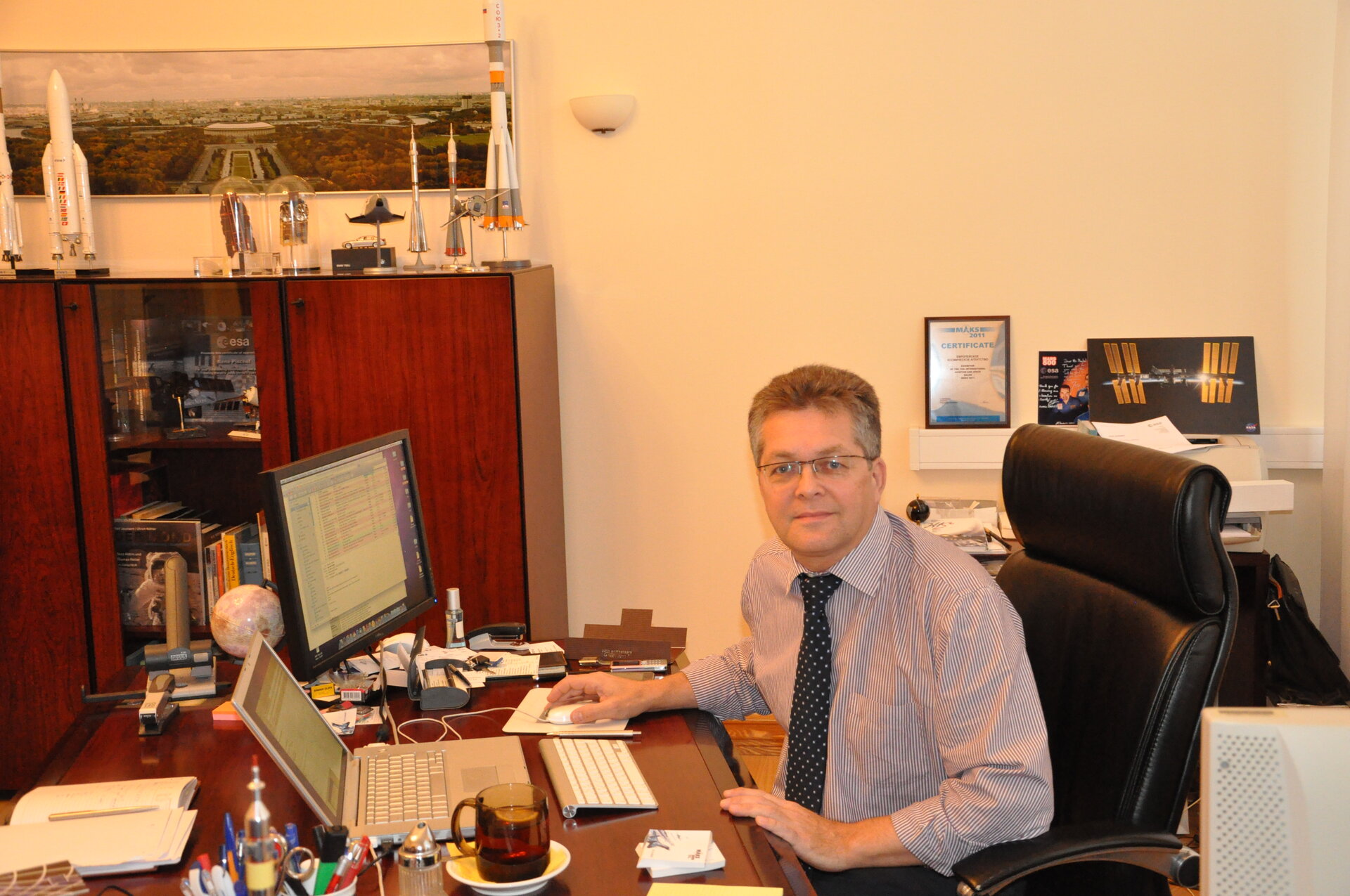Skoltech students at the Space Center were treated to a very special guest speaker on Wednesday: René Pischel, Head of the European Space Agency Permanent Mission in the Russian Federation, spoke about ESA and its astronaut requirements, the impact of the pandemic on agency activities, career opportunities and the future of the ISS.
Dr. Pischel’s lecture was part of the unique course, ‘Space Sector,’ where distinguished guests are invited to present their perspectives on the space economics, space policy, and space technology. The course examines the domain of space from multiple vantage points — space as a business, a way of life, as industry, and as a fulfillment of human dreams. In addition, it examines space-related issues that drive key international regulatory, economic, and global policy. To gain insight into these different dimensions, the course examines space through three different lenses: sub-sectors, technologies, and organizations. All of these topics are integrated in a CDIO-based approach to engineering education, which features such disciplines as systems thinking and critical thinking.
Skoltech research scientist Yaroslav Menshenin, who co-instructs the course, and his colleagues (lead instructor Prof. Сlement Fortin, co-instructor Prof. Tatiana Podladchikova, course founder Prof. Edward Crawley) outlined the thinking behind the course in a recent paper at the 71st International Astronautical Congress (IAC). The paper with the proposed approach applied to a variety of sectors has also been accepted for the upcoming International CDIO Conference. The reviewers found the proposed methods very relevant and needed in today’s engineering education environment.
Dr. Pischel provided an extensive overview of ESA activities in manned and robotic space exploration, Earth observation, ground support activities and other areas, as well as a look at the agency’s membership, budget and spending. The audience was curious about what it takes to become an astronaut, how ESA handles failures, and whether the International Space Station will continue to serve as humanity’s outpost in space post-2024.
“You might remember there was this Russian Mars 96 mission, which was launched to fly to Mars in 1996 and unfortunately failed right after the launch. That Russian mission had quite a number of European instruments on it. In many cases, apart from the instrument that is actually put on the spacecraft, a spare instrument is built just in case there are some problems at the last moment. Since these spare instruments were available, we had the idea to say – well, let’s use these for a new mission, a much smaller spacecraft. That is how Mars Express happened. After 1996, it took us only seven years to put together a new spacecraft that is still flying around Mars and providing excellent data,” Dr. Pischel said when asked about the agency’s approach to failures and errors.
“Of course, you cannot avoid failures… The most important thing is that you learn from these failures and that you continue to fulfill the task you had initially,” he added.
The COVID-19 pandemic challenged ESA to switch to a new remote mode of work, which the agency has managed quite well, Dr. Pischel noted. “I don’t think we had any break in operations,” he said, adding that some satellites even ended up being operated from the employees’ home offices. ESA also made an effort to support the European space industry with simplified and expedited approval of contracts during this time.
Regarding the future of the ISS, Dr. Pischel stressed that ESA is interested in continuing the operations of the station, which was a big investment for all partners, to make sure it is used to the maximum. The formal agreement extends the life of the ISS until 2024, and then future decisions have to be made based on a technical assessment. An upcoming Ministerial council of ESA member states in 2022 is expected to decide on the budget for any future ISS operations.
“So far we were not approached officially by our Roscosmos colleagues. Of course, we will have to discuss ways to continue with them. I understand even if they make a decision to build their own station, it does not mean that somebody will come and switch off the lights in the Russian segment on December 31, 2024,” Dr. Pischel said.
Contact information:
Skoltech Communications
+7 (495) 280 14 81

